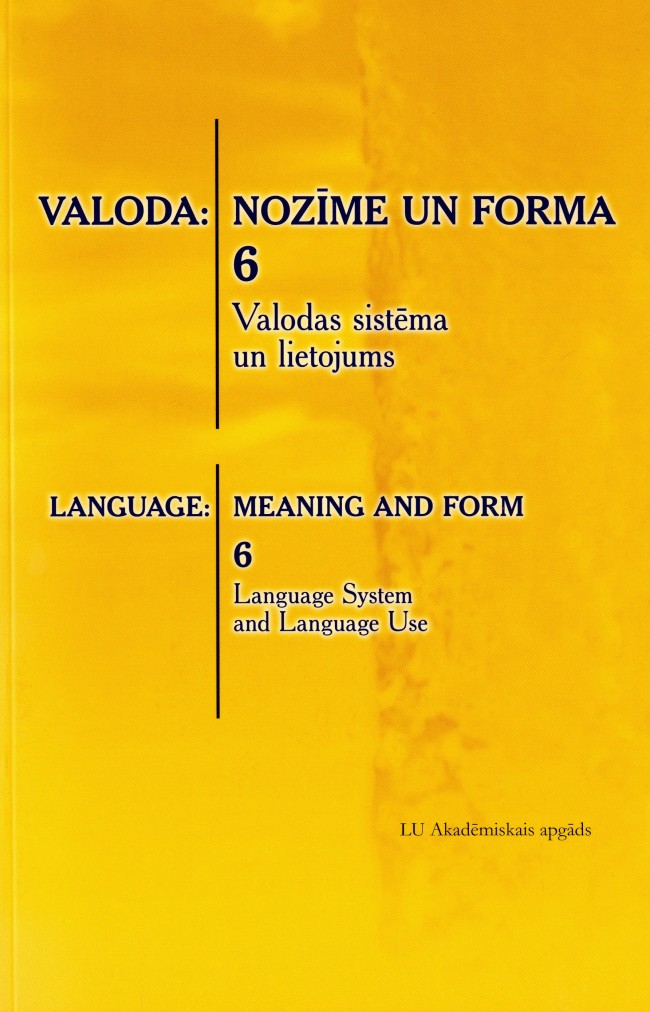Constituents of Spatial Adpositional Phrases in Latvian and Mandarin Chinese
Constituents of Spatial Adpositional Phrases in Latvian and Mandarin Chinese
Author(s): Marija NikolajevaSubject(s): Language studies, Language and Literature Studies, Comparative Linguistics, Baltic Languages
Published by: Latvijas Universitātes Akadēmiskais apgāds
Keywords: spatial prepositions; case endings; localizers; place words; semantic roles; Latvian; Chinese
Summary/Abstract: The article focuses on the syntactic and semantic aspects of the constituents of spatial adpositional phrases in Latvian and Mandarin Chinese. While studying the elements of the spatial expressions, one can discover that the properties of prepositions and nouns differ in Latvian and Mandarin Chinese. As a result, the constructions formed for describing spatial relations in the two languages are typologically different. The Chinese localizers are equivalent to Latvian prepositions, adverbs and nouns. The position of the spatial phrase affects the grammatical meaning of the sentence in Chinese and the pragmatic meaning in Latvian. In Latvian, prepositions and cases are polysemous – each may perform several semantic roles. Chinese prepositions are not polysemous in this sense.
Journal: Valoda: nozīme un forma
- Issue Year: 2015
- Issue No: 6
- Page Range: 155-173
- Page Count: 19
- Language: Latvian

